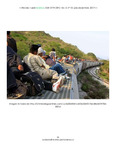
Please use this identifier to cite or link to this item:
http://ricaxcan.uaz.edu.mx/jspui/handle/20.500.11845/475Full metadata record
| DC Field | Value | Language |
|---|---|---|
| dc.contributor | 15139 | es_ES |
| dc.contributor.other | 0000-0002-2303-0240 | es_ES |
| dc.contributor.other | https://orcid.org/0000-0002-0685-3165 | - |
| dc.contributor.other | https://orcid.org/0000-0002-2303-0240 | - |
| dc.coverage.spatial | México | es_ES |
| dc.creator | García Zamora, Rodolfo | - |
| dc.creator | García Guerrero, Montserrat | - |
| dc.date.accessioned | 2017-10-23T16:02:59Z | - |
| dc.date.available | 2017-10-23T16:02:59Z | - |
| dc.date.issued | 2017-07 | - |
| dc.identifier | info:eu-repo/semantics/publishedVersion | es_ES |
| dc.identifier.issn | 0719-3092 | es_ES |
| dc.identifier.uri | http://hdl.handle.net/20.500.11845/475 | - |
| dc.identifier.uri | https://doi.org/10.48779/xcqr-k727 | - |
| dc.identifier.uri | https://doi.org/10.48779/gc58-te03 | - |
| dc.description | The migratory issue has been treated in Mexico as an income that doesn´t require investments and as an topic that can be postponed. But the return migration of mexicans from the United States, due to the economic crisis of 2007-2008, the anti-migrant policies and the massive deportations, call into question the economical, political and institutional structure of the country, the states and the municipalities; and raises the challenge of generating new public policies that support mexican migrants and the reintegration of returned migrants and their families. Policies that must be generated from all the social actors of the migratory phenomenon. When gubernamental authorities are lacking in proposals, those involved in the migratory issue find a sterile road to take in their hands the agenda and be capable of generating serious and concrete proposals. This paper is the review of the work of the civil society which is being organized and proposing specific actions to face migration from different edges. | es_ES |
| dc.description.abstract | El tema migratorio ha sido tratado en México como una fuente de ingresos económicos que no requiere mayores inversiones y como un tema postergable, pero el tema del retorno de los migrantes mexicanos de Estados Unidos, a causa de las crisis económico de 2007-2008, las políticas antimigrantes y las deportaciones masivas, cuestiona la estructura económica, política e institucional del país, de los estados y municipios y plantean el reto de generar nuevas políticas públicas que apoyen a los migrantes y a la reintegración de los migrantes retornados y sus familias por parte de todos los actores sociales del fenómeno migratorio. Cuando las autoridades gubernamentales se muestran carentes de propuestas se encuentra un terreno fértil para que los involucrados en el fenómeno se apropien de la agenda y sean capaces de generar propuestas serias y concretas, este trabajo es pues, el recuento de este camino, el de la sociedad civil que está organizándose y planteando acciones para encarar a la migración desde sus diferentes aristas. | es_ES |
| dc.language.iso | spa | es_ES |
| dc.publisher | Corriente nuestrAmérica desde Abajo | es_ES |
| dc.relation | http://www.revistanuestramerica.cl/ojs/index.php/nuestramerica/tabla | es_ES |
| dc.relation.uri | generalPublic | es_ES |
| dc.rights | Attribution-NonCommercial-ShareAlike 3.0 United States | - |
| dc.rights.uri | http://creativecommons.org/licenses/by-nc-sa/3.0/us/ | - |
| dc.source | Revista nuestrAmérica; Vol. 5; No. 10; julio-diciembre, pp. 90-11. | es_ES |
| dc.subject.classification | CIENCIAS SOCIALES [5] | es_ES |
| dc.subject.other | Políticas migratorias | es_ES |
| dc.subject.other | Organizaciones de migrantes | es_ES |
| dc.subject.other | Políticas públicas | es_ES |
| dc.subject.other | Migratory policies | es_ES |
| dc.subject.other | Migrants - Organizations | es_ES |
| dc.subject.other | Migration - Public politics | es-ES |
| dc.title | Comunidades transnacionales, academia y sociedad civil hacía la construcción de una agenda migratoria en México | es_ES |
| dc.title.alternative | Transnational communities, academia and civil society were building a migration agenda in Mexico | es_ES |
| dc.type | info:eu-repo/semantics/article | es_ES |
| Appears in Collections: | *Documentos Académicos*-- UA Estudios del Desarrollo | |
Files in This Item:
| File | Description | Size | Format | |
|---|---|---|---|---|
| García Zamora Rodolfo comunidades transnacionales.pdf | 517,88 kB | Adobe PDF |  View/Open |
This item is licensed under a Creative Commons License
